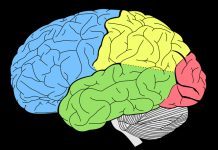A new brain study published its findings on Monday in the Journal of Neuroscience. This study proved that the love of music is not superficial. It is actually linked with a system that may help you survive.
How many of you love music? Well, everyone loves different kinds of music. It helps improve our well-being. Music is a mood booster and stress buster. Sometimes people feel so good about listening to their favorite music then they notice that the hair on their arms pricked up and shiver.
Researchers from McGill University in Canada have been studying the connection between music and the brain for years. Finally, they showed what is happening in the brain when people listen to music they love.
In their previous study, these scientists discovered a correlation between music that people love the most and listening. This brain study has performed an activity in a part of the brain’s reward system known as the Striatum.
Zatorre told Inverse, “We’ve known for 67 years that if you take a rat and it’s starving, and you give it food, and you measure the activity in the brain, the striatum responds very strongly to the highly pleasurable substance that it needs to survive.”
A Brain Study -What Happens in the Brain When We Listen to Music
It was a controlled study with seventeen participants. Mas Herrero utilized a method known as Transcranial Magnetic Stimulation(TSM) to excite or inhibit the striatum when participants listened to pop music.
During this activity, a magnetic coil was placed over a particular area of the brain. Then a technician passed bursts of electromagnetic pulses to that specific area of the brain, stimulation activity. Based on the frequency of bursts, TSM may also inhibit activity in a particular area of the brain.
After listening to music along with TSM, the participants were shifted to an fMRI machine where the scientists could examine exactly what was happening in the brain.
Zatorre explains about the process, “If we do [TSM] to stimulate the striatum and measure brain activity at the same time, we ought to see that stimulation influences the striatum and the activity the striatum, in turn, causes the differences in the way people feel about a piece of music.”
The scientists also added a value competent into research at different excitatory and inhibitory TSM stimulation levels. It is designed to activate the striatum to free dopamine. Scientists also asked the participants how much they spent to purchase the music they were listening to. The brain’s reward system is created to analyze how much importance they gave to the music.
What Did the Study Discover?
The study’s outcomes were that the team’s hypothesis was that the auditory complex and striatum were communicating.
Zatorre stated that “The auditory parts of the brain were more correlated with the striatum when the stimulation was positive than when the stimulation was negative.”
It is important to find out that when you love the music you are listening to, your striatum is speaking back and forth with the auditory cortex. The brain witnesses all the rhythms of chord relationships and different sound patterns, and melodic expectancy patterns. The past study suggests that communication between various brain areas can have a strong impact on people’s behavior and feelings.
Conclusion
The research results suggest that the pleasure we receive (or we don’t receive) from music is because of our communication between the auditory complex and striatum.
Striatum stimulation is connected with how high the participants rated the music and corresponds with the money they are willing to pay for it.


















